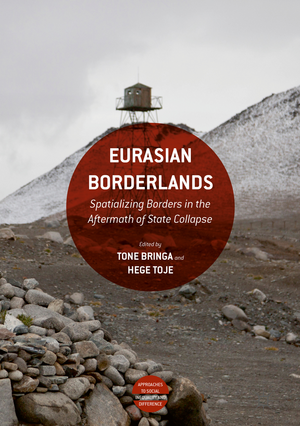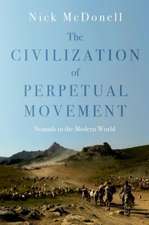Eurasian Borderlands: Spatializing Borders in the Aftermath of State Collapse: Approaches to Social Inequality and Difference
Editat de Tone Bringa, Hege Tojeen Limba Engleză Hardback – 14 noi 2016
Preț: 895.89 lei
Preț vechi: 1092.56 lei
-18% Nou
Puncte Express: 1344
Preț estimativ în valută:
171.43€ • 179.44$ • 142.68£
171.43€ • 179.44$ • 142.68£
Carte tipărită la comandă
Livrare economică 31 martie-14 aprilie
Preluare comenzi: 021 569.72.76
Specificații
ISBN-13: 9781137583086
ISBN-10: 1137583088
Pagini: 304
Ilustrații: XIV, 261 p. 16 illus., 6 illus. in color.
Dimensiuni: 148 x 210 x 22 mm
Greutate: 0.59 kg
Ediția:1st ed. 2016
Editura: Palgrave Macmillan US
Colecția Palgrave Macmillan
Seria Approaches to Social Inequality and Difference
Locul publicării:New York, United States
ISBN-10: 1137583088
Pagini: 304
Ilustrații: XIV, 261 p. 16 illus., 6 illus. in color.
Dimensiuni: 148 x 210 x 22 mm
Greutate: 0.59 kg
Ediția:1st ed. 2016
Editura: Palgrave Macmillan US
Colecția Palgrave Macmillan
Seria Approaches to Social Inequality and Difference
Locul publicării:New York, United States
Cuprins
Chapter 1 Introduction: Eurasian Borderlands.- Chapter 2 Post-Soviet or Eurasian Lands? Rethinking Analytic Categories in the Ukraine-EU and Russia-China Borderlands.- Chapter 3 Dead End: A Spatial History of a Border Town in post-Soviet Kyrgyzstan.- Chapter 4 With a Border Fence in the Backyard: Materialization of the Border in the Ferghana Valley.- Chapter 5 Across the Enguri Border: Lives Connected and Separated by the Borderland between Georgia and Abkhazia.- Chapter 6 Remembering and Living on the Borderlands in the South Caucasus.- Chapter 7 Time and Contingency in the Anthropology of Borders: on Border as Event in Rural Central Asia.- Chapter 8 Producing territories: spatial practices and border effect between Krasnodar Krai and the Republic of Adygea in Russia.- Chapter 9 From Boundaries to Borders: Spatial Practices and State-Making; the Case of Bosnia-Herzegovina.- Afterword: Post-Soviet dynamics.
Notă biografică
Tone Bringa is Associate Professor in Social Anthropology at the University of Bergen, Norway.
Hege Toje holds a postdoctoral fellowship at the University of Bergen, Norway. Her research interests in political anthropology include state formation, mobility and history.
Textul de pe ultima copertă
This book examines changing and emerging state and state-like borders in the post-Soviet space in the decades following state collapse. This book argues border-making is not only about states’ physical marking of territory and claims to sovereignty but also about people’s spatial practices over time. In order to illustrate how borders come about and are maintained, this book looks at border communities at internal, open administrative borders and borders in the making, as well as physically demarcated international state borders. This book also pays attention to both the spatial and temporal aspects of borders and the interplay between boundaries and borders over time and thus identifies some of the processes at play as space is territorialized in Eurasia in the aftermath of state collapse.
Caracteristici
Fills a gap in the research through a comparative exploration of local and regional developments on both sides of borders based on cases from in Eastern Europe, the Caucasus, and Central Asia Deals explicity with the borderlands in the aftermath of collapsed states Looks closely into the phenomenon of reorganizing of space and boundaries in the making and unmaking of new state or state-like borders

























